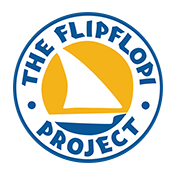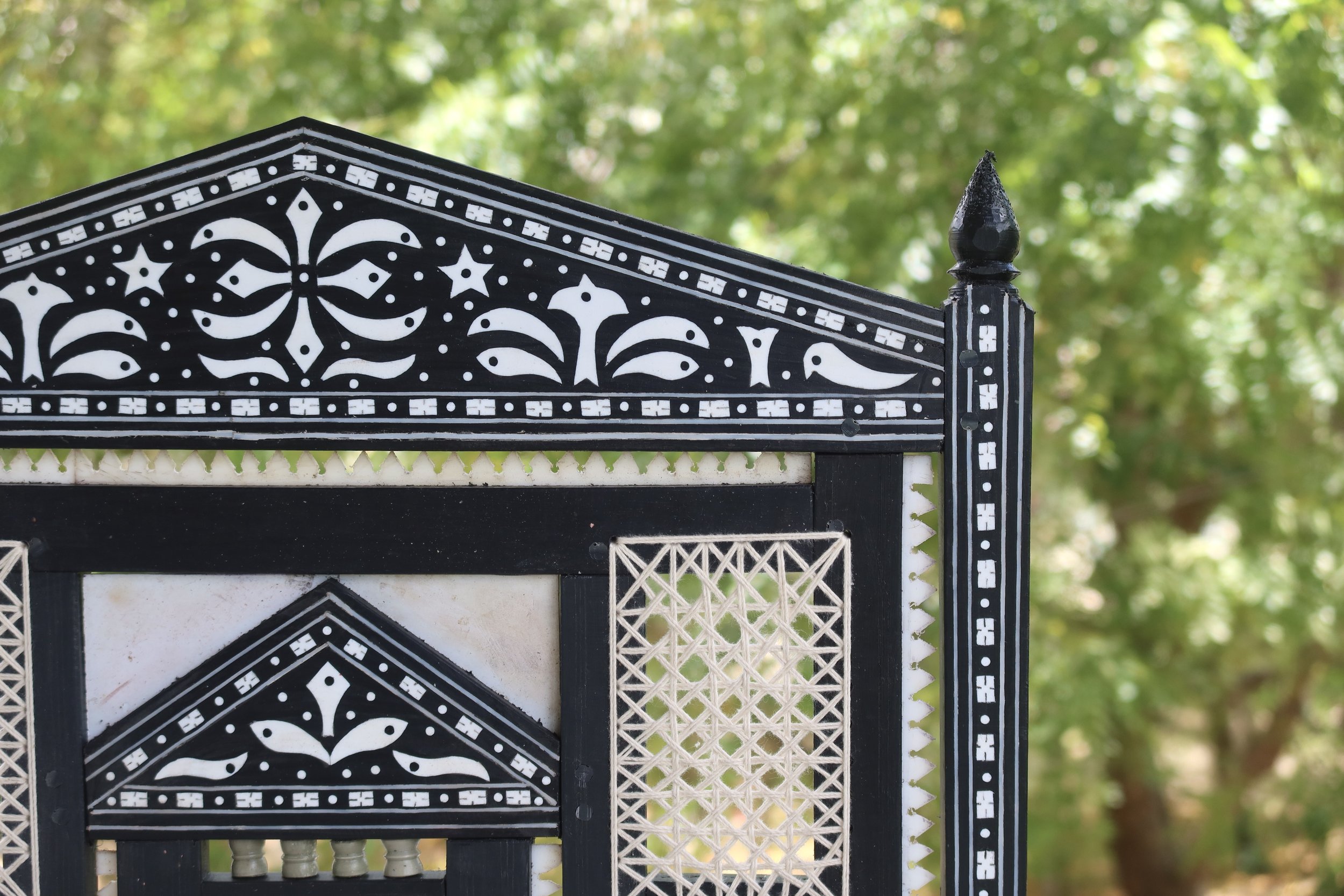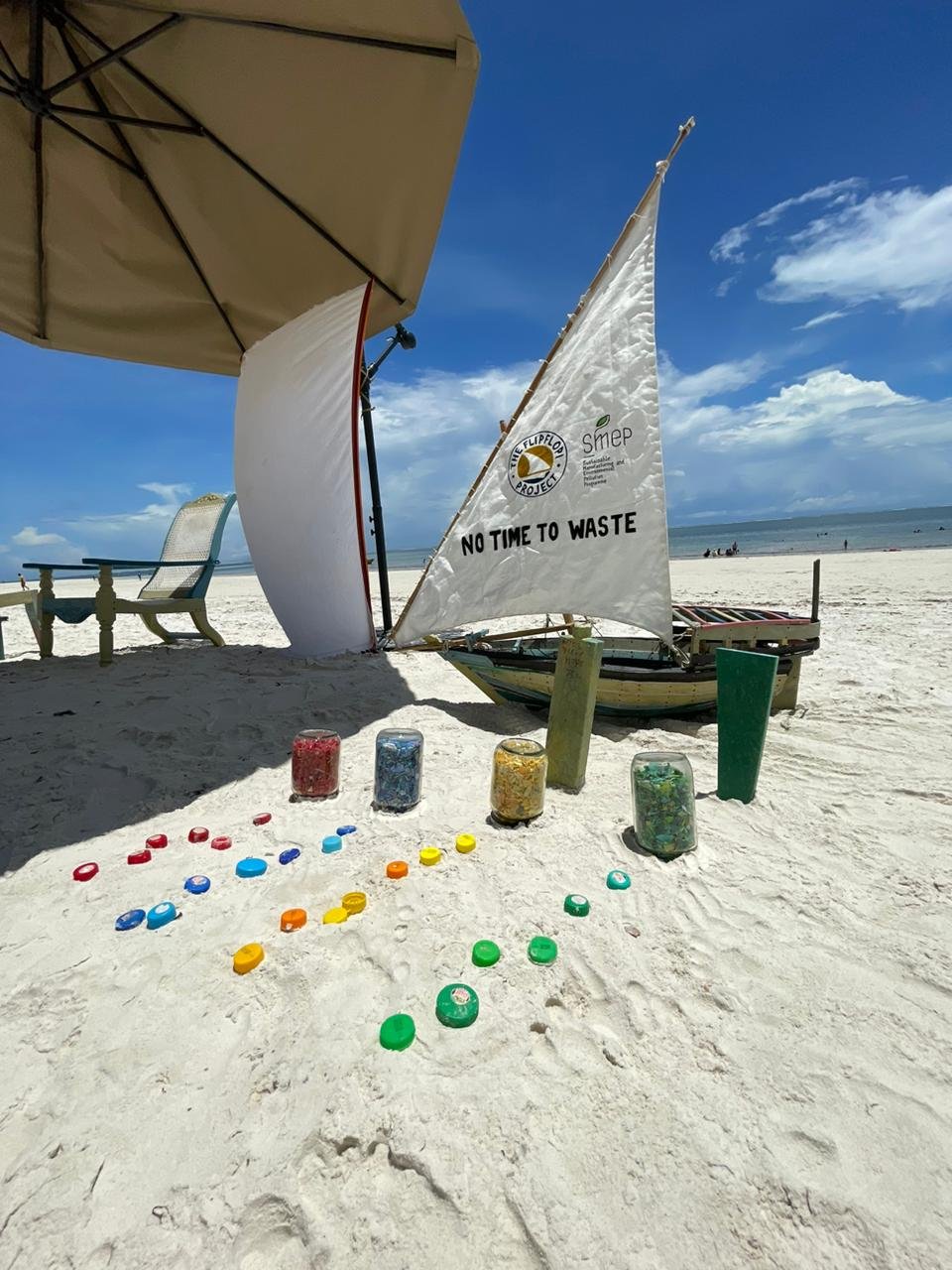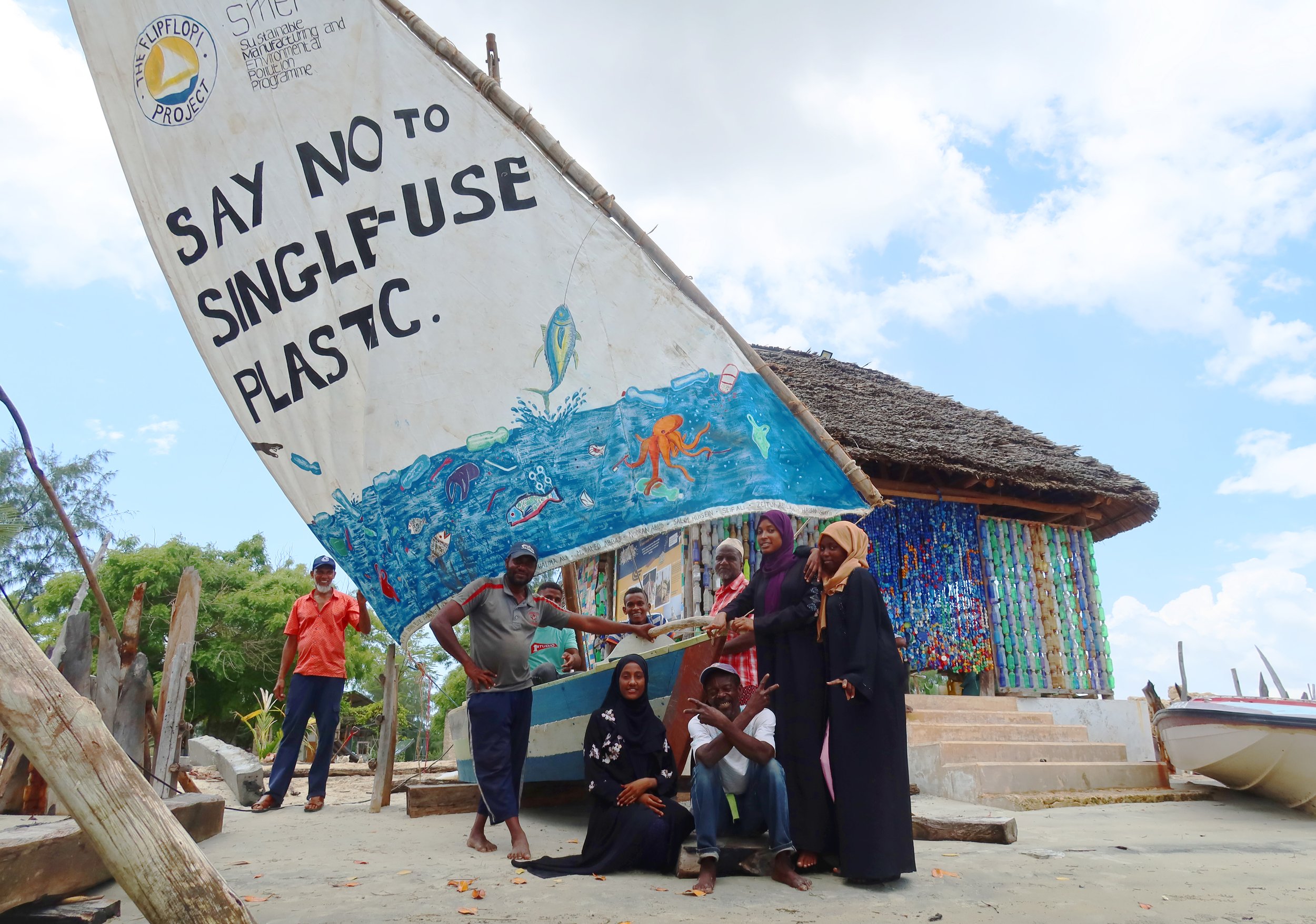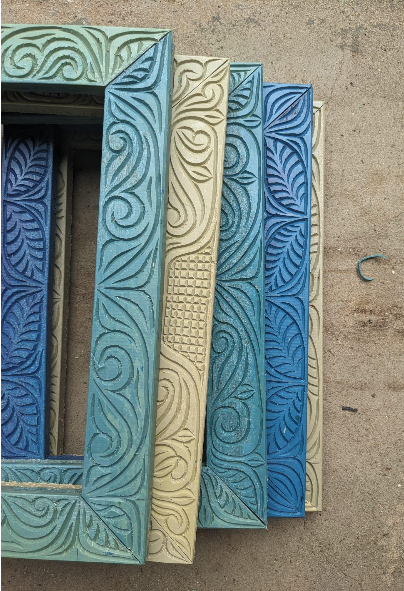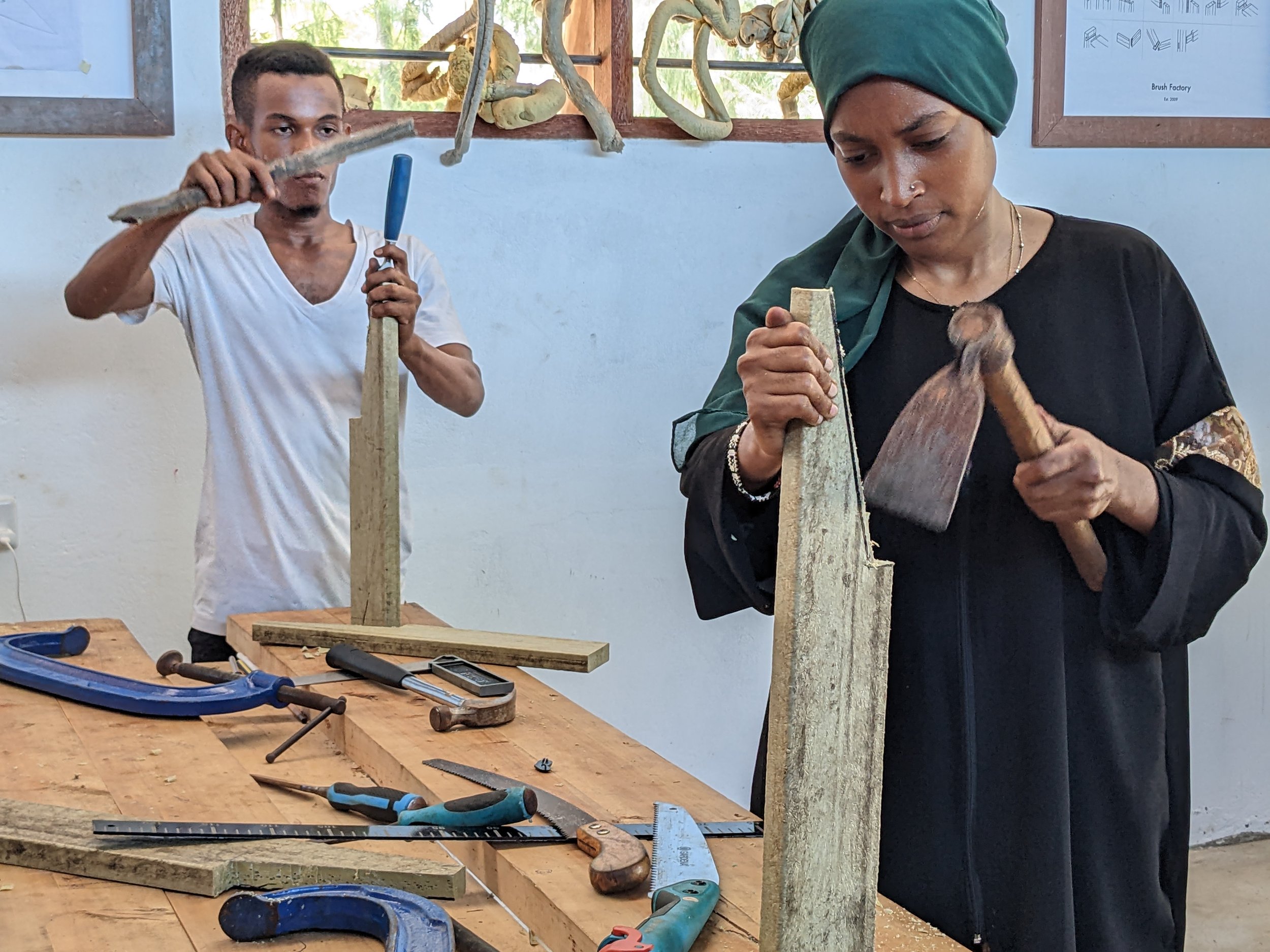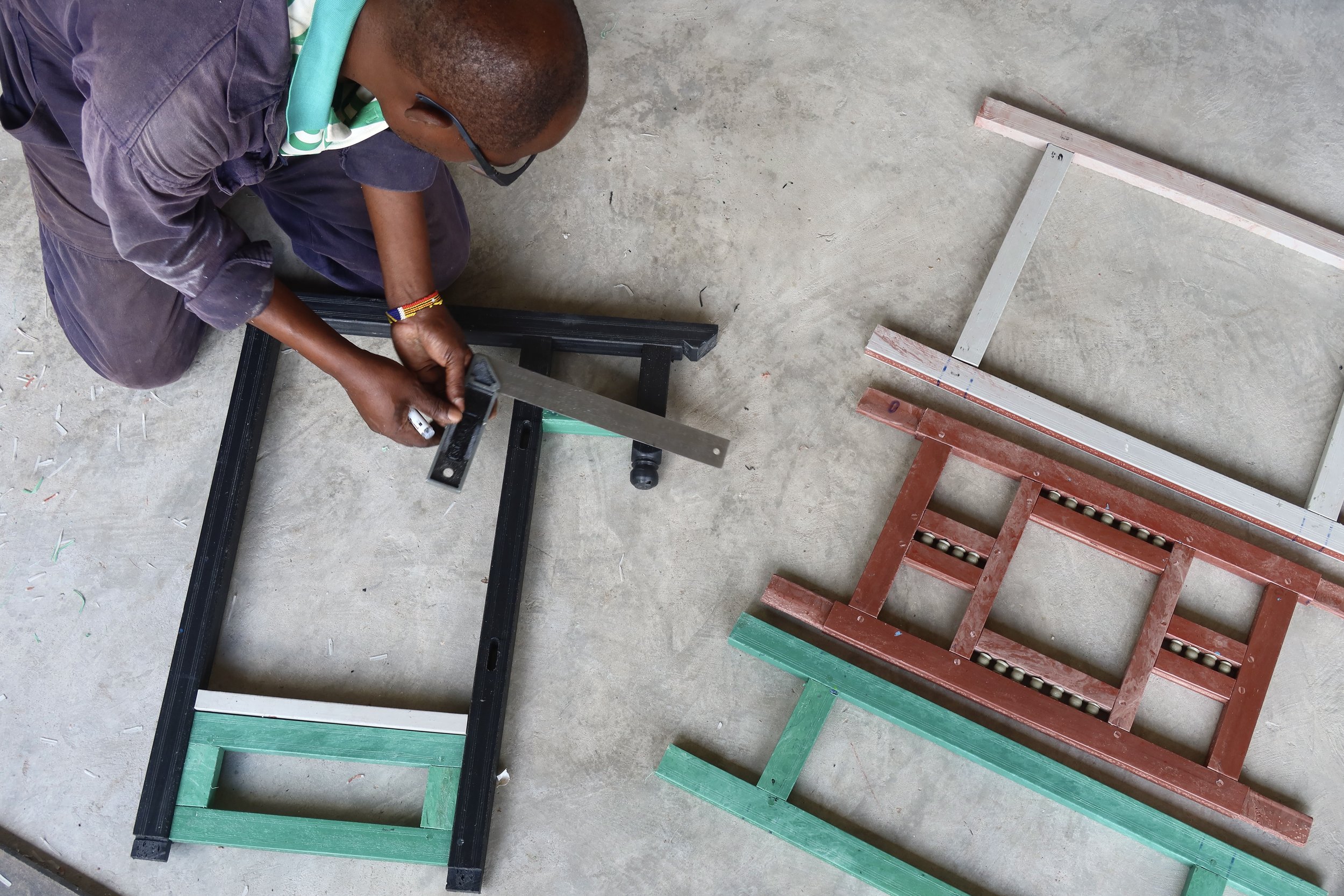A recycled plastic chair that’s fit for a king: Flipflopi meets King Charles during his visit to Kenya
Flipflopi had the honour of being chosen to meet King Charles on 2 November during his Kenyan tour, where we presented him with a 100% recycled plastic handcrafted 'throne' - the "kiti cha enzi" ("the grandee's chair” in kiswahili) as a token of our appreciation for the UK Government's support of Flipflopi over the last couple of years.
The King is a long-time environmental campaigner and, in a speech last year, called for the world to ‘address plastic pollution on a massive scale’, so it was fitting that he was able to meet members of the Flipflopi team (Dipesh, Ali and Katharina) and other plastic pollution campaigners including our friends Baus Taka, and the Tide Turners on his Kenyan tour.
This chair represents the work we have been doing to bring remote locations like the Lamu archipelago into the circular economy. Thanks to the community and The SMEP Programme we have been able to set up a community-led network of several hundred local collectors who receive cash-for-collections inspiring a ‘waste-is-wealth’ mantra across the islands as well as support existing local environmental groups with a place for their plastic waste to go, transport to move it and compensation for their plastic recovery efforts. The hard plastics are used as feedstock in our recycling facility, where we are producing high-quality lumber (that’s designed to last as long as possible in its recycled form). As well as reducing plastic pollution, our goal is to preserve and cultivate the indigenous craftsmanship of Swahili furniture-making and boat building, using the lumber to hand-craft artisanal furniture like this throne and of course, traditional boats.
Photo credits: UK in Kenya
To-date we have created >40 unique product lines and different sailing boats, in keeping with maritime and Swahili heritage. In 15 months, we have collected >200,000 kgs of plastic pollution, employed 30 full-time staff, and are providing regular income to hundreds of local collectors, serving a population of approximately 60,000 in the remote island archipelago of Lamu, Kenya.
The low-tech, high-craft process that produced the King’s throne was pioneered in the creation of the The Flipflopi Dhow (Ndogo), but the lumber manufacturing process has significantly improved, through SMEP in the Flipflopi recycling and boatbuilding and furniture centre over the past year. Most of the qualities of the material have been improved: the bending resistance, the breaking resistance, the surface quality and uniformity of the material composition. This again increases the repeatability and reduces the risk of quality outliers which means the products themselves have a much longer ‘second life’.
The ultimate goal: An inclusive circular economy for all
We are using a systemic approach to build working replicable models for circularity of plastics in peri-urban areas with little to no waste management and rapidly growing populations. The aim of this model is to lay the correct foundation and systems so as to prevent us getting to the mammoth crises that countries in South East Asia or the global north are in; and at the same time to find optimal localized and cost-effective technologies to tackle the full cycle from recovery to end product.
We hope to create a comprehensive toolkit that can be used by local governments and communities. At the same, we are building our knowledge and skills about various plastic based materials that are locally abundant and the extent of their circularity, which hopefully helps to inform regional and multilateral approaches to plastic pollution being discussed in East Africa, and at the global level.
Our training centre that is teaching practical circular economy skills and the indigenous craftsmanship is designed to build capacity and knowledge and preserve these ancient skills that are in danger of dying out in Lamu.
We are really grateful to The SMEP Programme whose funding made all this product development possible, and of course, our incredible team of collectors, sorters, recyclers, craftsmen, and teachers who are the ones making it all happen on our little beach in Lamu.
You can read some of the media and social media coverage about the King’s Visit by visiting: UK’s Daily Mail: link; Kenya’s Nation: link and the Royal Palace social
